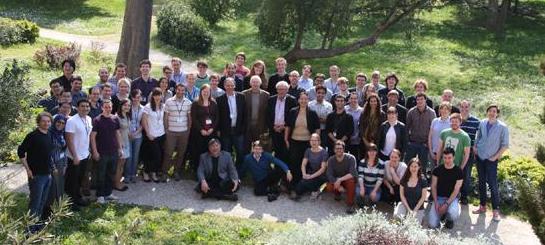Bilkent PhD Students Discuss Global Challenges With Nobel Laureates
By Alper Devrim Özkan (MSN/PhDII)
Global Challenges: Opportunities for Nanotechnology, an international nanotechnology workshop organized by the Center for Nanoscience in Munich, the Swiss Nanoscience Institute and ETH Zurich, was recently held on the island of Sen Servolo in Italy. Bilkent was represented at this prestigious event by Tural Khudiyev and Hakan Ceylan, graduate students currently conducting their research under the instruction of Assoc. Prof. Mehmet Bayındır, Asst. Prof. Ayşe Begüm Tekinay and Asst. Prof. Mustafa Özgür Güler in UNAM. Among the highlights of the workshop were roundtable discussions with eminent researchers, including Nobel laureates, who pioneered in several important fields.
Bringing together over 60 graduate students and postdoctoral researchers from around the world, the workshop covered a broad range of critical issues that require urgent attention from an interdisciplinary group of scientists to resolve, seeking to identify potential solutions that research at the nanoscale might offer. Participants focused on six areas (education, energy, environment, food, water and health) where nanotechnology may play a key role in addressing major problems, and combined their diverse areas of expertise to discuss how inexpensive, effective and sustainable solutions can be developed for a host of issues. Every aspect of nanotechnology, from next-generation solar cells to nanoparticle-mediated environmental remediation, was examined by young academicians as a potential method to alleviate or even outright eradicate a number of pressing global problems.
Researchers were encouraged to present their areas of interest in posters and short lectures, allowing the next generation of nanoscientists to familiarize themselves with each other's work and form long-lasting bonds that may later develop into highly productive academic networks. Both Bilkent representatives discussed their research at the workshop: Hakan Ceylan detailed his work on the biofunctionalization of implants using a mussel-inspired peptide, while Tural Khudiyev's presentation covered his research on the synthesis, handling and practical applications of kilometer-long nanostructures.
